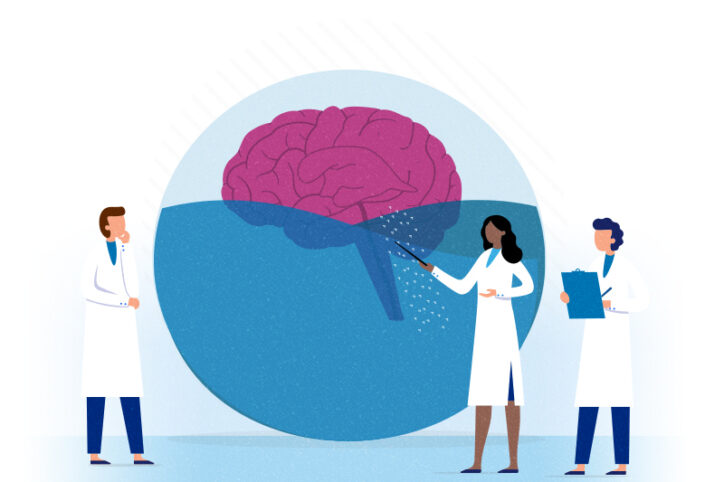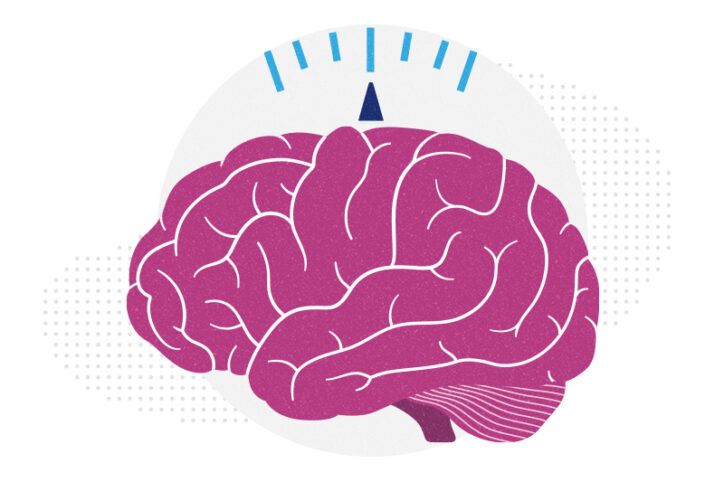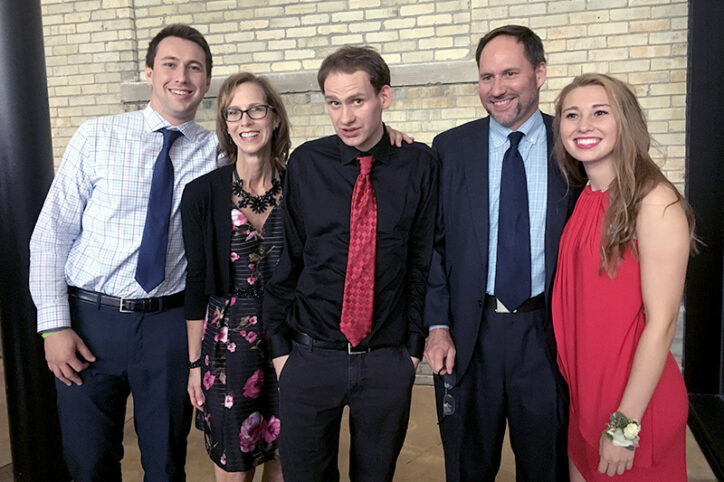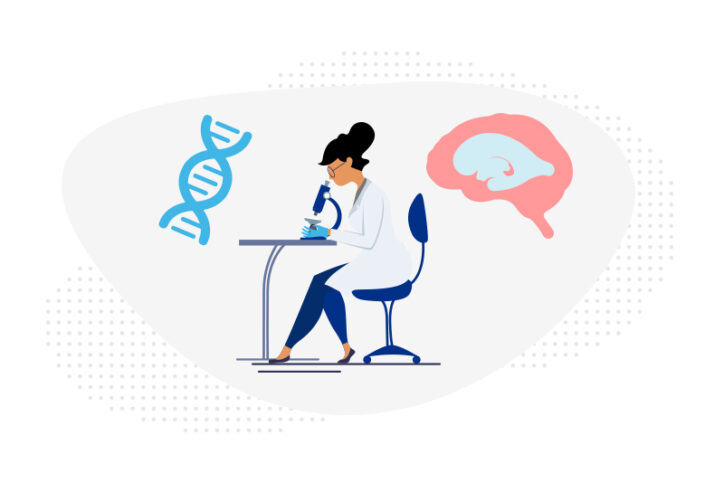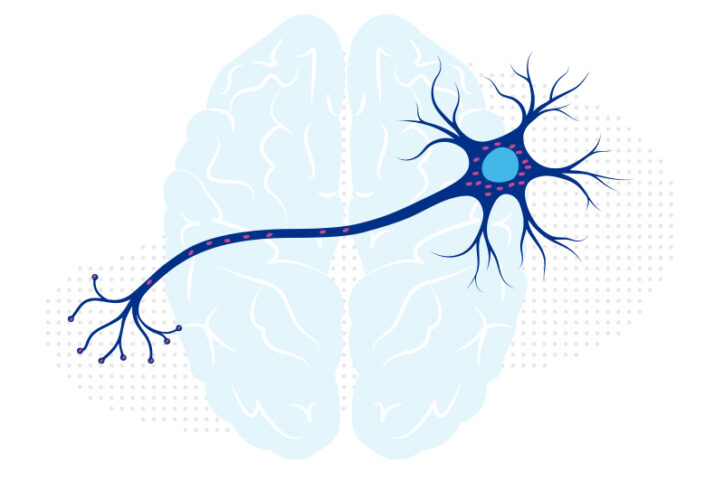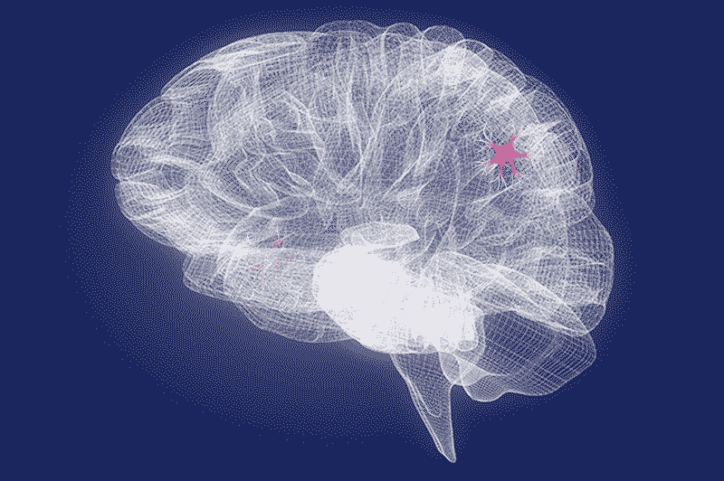Archive for neuroscience
Facial weakness: A dark matter detective story
Elizabeth Engle, MD, has devoted her career to finding genetic and developmental causes for disorders of eye, eyelid, and facial movement. From common conditions like strabismus to very rare disorders, these conditions can impact a person’s appearance and impair social communication, making it hard to shift one’s eyes up, down, or sideways or adjust facial expressions. Each ... Read More about Facial weakness: A dark matter detective story
Tagged: genetics and genomics, neurology, neuroscience, ophthalmology
Inspired by her daughter, one mom helps families navigate complex epilepsy
Colleen Gagnon felt something wasn’t right soon after her daughter Niamh was born but tried to convince herself she was just overthinking. Fighting her instincts as a nurse and second-time mom, Colleen tried to link the dimple in Niamh’s forehead and darting eye movements to her being born six weeks early. But an eye doctor’s ... Read More about Inspired by her daughter, one mom helps families navigate complex epilepsy
Tagged: epilepsy, microcephaly, neuroscience, seizures
Another angle on Alzheimer’s: CSF, proteomics, and metabolic enzymes
Currently there are no objective, easily assessed diagnostic markers for Alzheimer’s disease, and no good therapeutic options. Taking an agnostic approach, proteomics expert Hanno Steen, PhD, and neurobiologist Judith Steen, PhD, who share a lab at Boston Children’s Hospital, teamed up to analyze proteomics data from the cerebrospinal fluid (CSF) that bathes the brain, combining ... Read More about Another angle on Alzheimer’s: CSF, proteomics, and metabolic enzymes
Tagged: alzheimers disease, metabolism, neurology, neuroscience, proteomics
BMI and the adolescent brain: A concerning connection
We all know that obesity is a growing epidemic in children and adults. A large national study now finds that preteens carrying excess weight have notable differences in cognitive performance, brain structures, and brain circuitry when compared to preteens with normal body-mass index (BMI). Funded by the National Science Foundation’s Harnessing the Data Revolution initiative, ... Read More about BMI and the adolescent brain: A concerning connection
Tagged: adolescent medicine, neuroscience, obesity
Conquering a rare metabolic condition: A family, a pediatrician, and two labs join forces
As a newborn, Sam Hoffman never cried or made a sound. His mother, Carolyn, often had to wake him up to feed him. He missed many of his infant milestones. At one visit, his pediatrician tapped his leg and couldn’t get a reflex. A urine test found extremely high levels of 4-hydrobutyric acid or GHB ... Read More about Conquering a rare metabolic condition: A family, a pediatrician, and two labs join forces
Tagged: epilepsy, gene therapy, metabolism, neurology, neuroscience, rare disease, stem cells
Could gene therapy relieve post-hemorrhagic hydrocephalus?
Premature infants, especially very low birthweight babies, are at risk for intraventricular hemorrhage. A frequent complication of these brain bleeds is hydrocephalus, an accumulation of cerebrospinal fluid (CSF) in the brain ventricles that can gravely disrupt brain development. If hydrocephalus develops, a child may need shunt operations throughout life to manage the fluid buildup. Could ... Read More about Could gene therapy relieve post-hemorrhagic hydrocephalus?
A promising target for ALS and other neurodegenerative disorders: Curbing inflammation
When cells recognize a danger, such as an infection, they activate the innate immune system. Sentinel molecules sound an alarm, recruiting immune cells to take down the threat. In 2016, Judy Lieberman, MD, PhD and her colleagues at Boston Children’s Hospital showed that a protein called gasdermin D initiates a final, decisive step: pyroptosis, a ... Read More about A promising target for ALS and other neurodegenerative disorders: Curbing inflammation
Tagged: immunology, neuroinflammation, neurology, neuroscience
Why do so many dementia treatments fail? Questioning mouse models of tau accumulation
To date, the search for effective treatments for dementia has yielded only disappointments. Many recent drug candidates target the tau protein, which aggregates and forms tangles in patients’ brain tissue and is involved in 75 percent of all dementias. While tau-targeting drugs have looked promising in mouse models, they’ve failed in clinical trials. A recent ... Read More about Why do so many dementia treatments fail? Questioning mouse models of tau accumulation
Tagged: alzheimers disease, drug development, neuroscience
Treating brain ‘hotspots’ and networks to address autism, aggression, and more
What if doctors could break down conditions like autism into their key symptoms, map these symptoms to “hotspots” in the brain, and then treat those areas directly with brain stimulation? If it bears out, such an approach could turn the care of neurologic and developmental disorders on its head, focusing on symptoms that are shared ... Read More about Treating brain ‘hotspots’ and networks to address autism, aggression, and more
Babies and screen time: New research calls for caution
If you’re a parent, you’ve probably been there. You have a baby howling for attention, but you need to cook dinner or get a sibling to take a much-needed nap. Baby TV shows, touch tablets, and digital phone toys can feel like lifesavers in keeping an active infant calm and contained while juggling what life ... Read More about Babies and screen time: New research calls for caution
Tagged: developmental medicine, eeg, media, neuroscience, primary care, well child care




